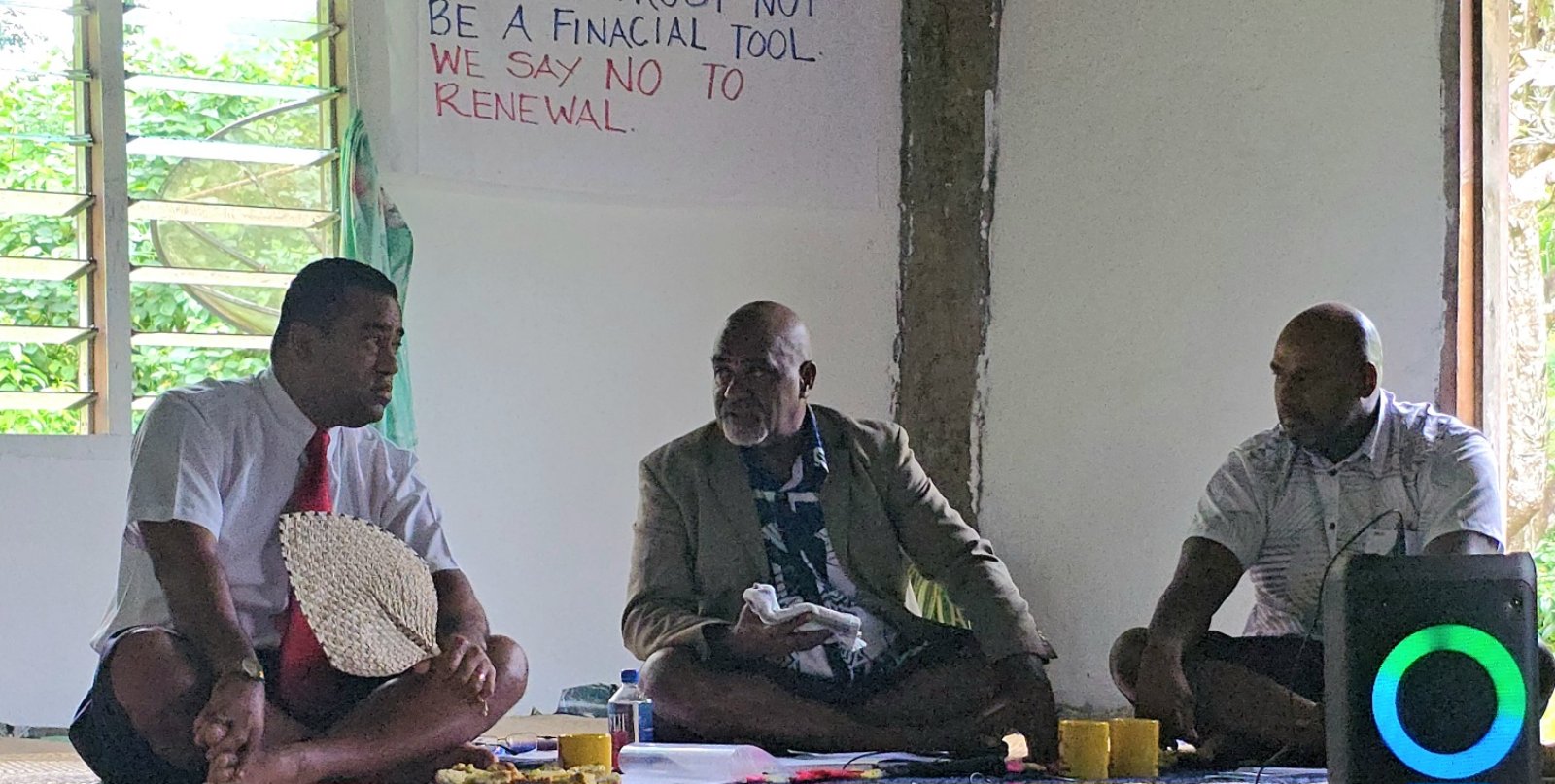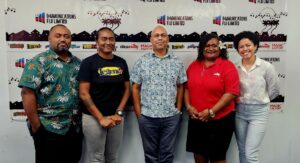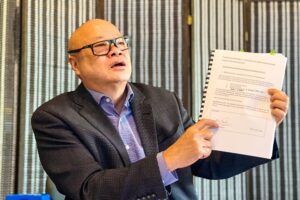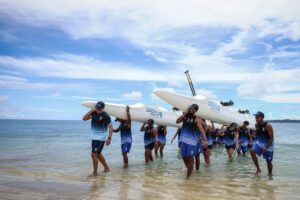Members of the Mataqali Nabukebuke in Namosi, central Fiji, have rejected a bid to renew a Special Prospecting Licence (SPL) held by the Namosi Joint Venture (NJV), highlighting environmental concerns and grievances dating back almost six decades.
The licence—known as SPL 1420—expired two years ago. It covers a large area of land, including the Waisoi prospect where NJV is currently based and where, according to government officials, the core ore bodies of potential mineral resources are believed to be concentrated. NJV has applied for a three-year renewal to continue desk-based geological work.

At a 3-hour-plus meeting held yesterday at a packed Namosi Village Hall, members of the mataqali, including youth, voiced strong objections directly to the Minister for Lands and Mineral Resources, Filimoni Vosarogo.
They raised long-standing grievances, loss of trust in government due to past incidents, and raised concerns for their livelihoods, their children’s future, and the impacts on the environment and biodiversity.
The hall was adorned with banners reflecting their opposition. Two banners placed near the minister’s seat read: “Fiji’s Mining Act Enslaves Us. Indigenous Landowners Deserve Protection, Not Exploitation.” Another banner, referring specifically to the licence, declared: “Our Stance is Clear: We Object to the Renewal of SPL 1420. No More Prospecting On Our Land.”
Landowners described what they called decades of injustice, dating back to 1968, when the first mineral exploration began on their land. Since then, companies including Viti Copper, Placer Pacific, WMC, AMAX/CRA, and Nittetsu have explored the mineral-rich Waisoi East and West prospects.
The current licence holder, NJV, has operated since 2008 but has not conducted any ground exploration since 2018.
Despite the mining reiterating that no terrestrial mining has ever taken place and that exploration ceased seven years ago, landowners insisted that the damage had already been done, not only to the environment but also to the social fabric of their communities. They said that exploration had divided the once closely knit province and eroded trust in the government.

“We have seen the damage and destruction caused by exploration,” said Jo Tauleka, former Chairman of the Tikina Namosi Landowners Committee—a body formed in 2010 after what he described as poor oversight by the Ministry of Mineral Resources in monitoring drill sites. “There were spills in the rivers. For years, we’ve seen the impact.”
Echoing similar sentiments, Petero Saunivalu, Managing Director of Mataqali Nabukebuke Holdings Pte Ltd—the business arm of the Mataqali Nabukebuke Namosi Koro Trust—highlighted the lack of engagement from the Ministry of Mineral Resources (MRD), stating that NJV had been more consistent in keeping them informed.
Sipiriano Nariva, Chair of Lomani Au Maroroi Au (LAMA)—an organisation long opposed to mining in Namosi—was among the first to object outright to the renewal during the meeting.
Landowners’ Proposals
The landowners’ demands extended beyond the rejection of SPL 1420. Several proposals were put forward during the meeting:
- Establish a landowner-led committee to oversee all matters relating to SPL 1420
- Explore a locally owned and managed mining entity that ensures environmental safeguards and community benefits
- Amend the Mining Act to give landowners more say in the management and use of their resources, even at the exploration or prospecting stage
- Develop alternative, non-extractive development projects
Under Fiji’s current mining legislation, landowners’ consent is not required for the granting of exploration licences. Consent is only needed at the mining lease stage—should exploration lead to viable mineral extraction, at which point 60% landowner approval is required.
Deborah Hadassah Mereoni Duaibe, CEO of the First Nation (Fiji) Resources Foundation and one of the attendees, highlighted the Mataqali Nabukebuke’s engagement in the Voluntary Carbon Market as part of Fiji’s climate change response. Through Mataqali Nabukebuke Holdings Pte Ltd, the clan has secured a 3,000-acre lease and is preparing the land for carbon credit trading.
“Respect our carbon project. Do not grant SPL 1420 in anticipation of the carbon trading either at the end of the year or early next year,” said Duaibe.
Presentation of Matanigasau
Vosarogo also presented a tabua—seeking forgiveness from the landowners on behalf of the Coalition Government and past governments for the harm caused by earlier exploration activities.
“I offer this on behalf of the state for the trauma and disruption experienced by your people,” he said.
The apology was accepted in the spirit of vanua—the unity of land and people.











